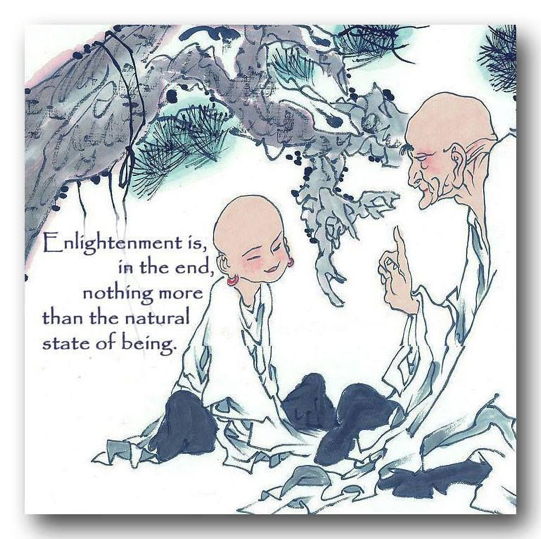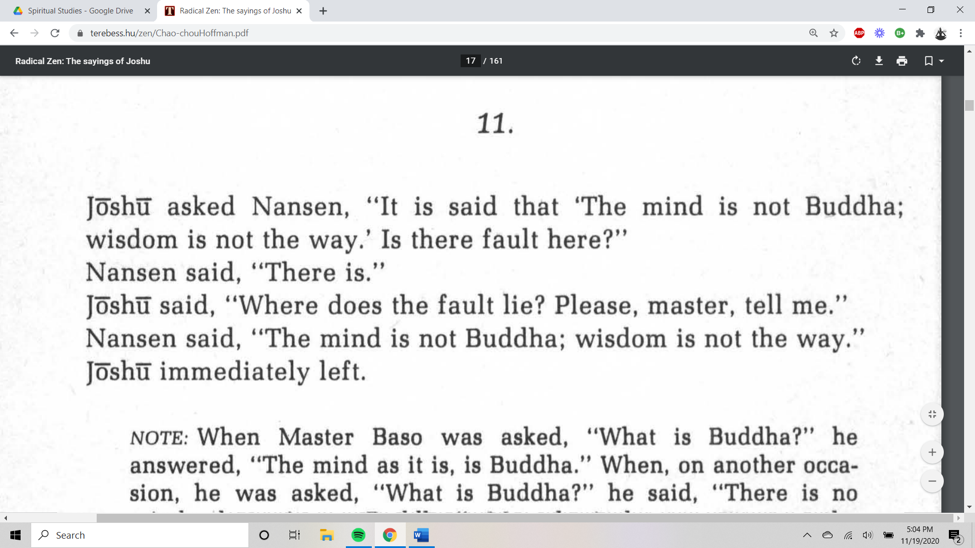What are you looking for?
What is Meditation?
What is Meditation?
Osho has spoken of the questioning of newer disciples and guests regarding meditation. I remember him saying, ‘They ask the wrong question. They ask “how to meditate” rather than “what is meditation?” This is the Zen approach. One’s ideas of meditation are what comes to the aid of the natural power grab the mind engages in when one sits to enter into presence with the moment. “Oh, I cannot meditate. This mind of mine is filled with too many thoughts; too many discourses about what needs to be done and what has occurred in the past. What may occur and what has occurred in the distant past.”
What to do? The method in zen, called zazen, is a simple way of allowing thoughts to be rather than fighting with them. As these thoughts arise, without evaluating, without accepting/rejecting, simply observing and see the stream of thoughts flow like a river or stream.
This is the Zen way. You have thoughts… and?? Why is this a difficulty for your meditation? Because, meditation should be silent, without thoughts. This definition and the dogmatic belief than some method with snap us directly into the experience of this silence allows the above example to be a logical out. “Well, mediation is just not for me.”
The slavery to this rambling, conditioned mind is the central issue meditation addresses. Forget any enlightenment or discovery or any such experiences; forget the idea that meditation is even going to be an observable experience. Who is observing? The mind?
Once we drop into a glimpse of separation from this thought stream, then the silence meditation speaks of is realized to be both different from what was priorly understood, but also deeper, more natural and profound than imagined.
This is why I do not suggest meditation apps, devices and tech to my students ever. Why deceive oneself that relaxation is meditation? Is meditation relaxing? Yes. No. Kind of. Sometimes. Ha! Meditation is just life. It is not an escape.
This is one of Nansen’s transmissions (in the koan at the start of the article) – the teaching not yet spoken is the teaching that gives direct insight into the nature of practice, life and self.
Exoteric teachings and beliefs serve a purpose and are wonderful. Relaxation and a break from the mind in this way are perfectly good. But if one wants an organic, full and real understanding of meditation, it simply cannot, will not and should not be handed to you. What will you do with an instant, unsought meditation samadhi? You will bring the mind into the mix and even this will become a ‘thing,’ an object.
This is why we seek experiences and less seek immersion. Transformation requires a dropping of the old. The old self. The old understandings. The old allegiances to traditions, philosophies, and education.
When words no longer suffice as worthy of really engaging with, Zen encourages one that they may be on to something.
Dropping definitions -> directing effort -> deepening resolve ->
allowing everything into the practice -> not expecting results but being open to them
With this, the path is set foot upon.


